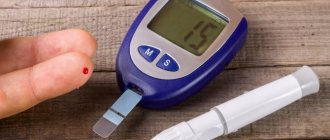Astheno-neurotic syndrome refers to neurotic diseases
and occurs due to exhaustion of the nervous system.
A distinctive feature of this disease is a feeling of extreme fatigue from everything and increased nervous excitability with a hint of irritability.
This illness is often confused with ordinary depression, vegetative-vascular dystonia or chronic fatigue. People with a mobile psyche who take events to heart and react emotionally to life circumstances are prone to this disease.
People with endocrine, infectious and cardiovascular diseases are also susceptible to asthenia.
Asthenia can affect any person, regardless of age and social adaptation.
Symptoms of the syndrome
Let's study the symptoms that characterize astheno-neurotic syndrome:
- excessive emotionality;
- sudden mood swings;
- lack of self-control;
- restlessness;
- impatience;
- intolerance;
- disturbed sleep;
- intolerance to strong odors, loud sounds, bright lighting;
- tearfulness, moodiness;
- constant irritation;
- headaches and dizziness;
- poor digestion.
Patients are prone to worry, exaggerating the situation, and exaggerating the significance of events.
During attacks of illness it begins
rapid heartbeat (tachycardia), dizziness. Quite often, an attack of asthenia is accompanied by stabbing pain in the heart and lack of air.
However, in accordance with the type of nervous system, the manifestation of the syndrome can be either extreme excitability or inhibition.
In this case, an inadequate reaction to the event occurs, a kind of “stupor”, and a lack of control over the situation.
A common manifestation is hypochondria.
The patient begins to invent non-existent diseases that he suffers from.
Such a person can go to doctors for months and complain about a non-existent illness.
But suggestibility itself can lead to a real illness invented by such a “sick”! Against the background of constant nervous abnormalities, disruptions in the gastrointestinal tract
. Patients may develop indigestion, suffer from heartburn, and belch after eating. When examining the gastrointestinal tract, the doctor, as a rule, does not detect any abnormalities.
Consequences and complications of the disease
Most often, asthenoneuratic syndrome occurs in a chronic form. But if at least minimal treatment of the pathology is absent, serious complications can arise:
- Stroke;
- Heart attack;
- Stomach ulcer and exacerbation of gastrointestinal diseases;
- Hormonal imbalances.
Also, in the absence of adequate therapy, depression may occur, which sometimes even leads to suicide. In the initial stages of the disease, a person is still able to help himself.
Complications of asthenia in children can lead to malfunctions of the thyroid gland, and, consequently, to disorders in the reproductive system. In adults, problems with reproductive function may occur.
Stages of the disease
Depending on the manifestation of the symptoms of the disease, the nature of the course of asthenia can be divided into three stages:
- increased excitability;
- sleep disturbance;
- depression.
These three stages of development of the disease do not occur without a reason, but are a consequence of a violation of the neurotic structures of the body.
First stage
is not perceived as a disease, but is considered a character trait. A tendency to tantrums and sudden mood swings is considered a character flaw or bad manners. Such uncontrollability of behavior is no longer a disadvantage, but a symptom of asthenia!
At the second stage
psychopathological processes are aggravated and astheno-neurotic syndrome is already pronounced. Fatigue occurs on its own, without physical or mental stress.
I am haunted by a feeling of “being overwhelmed”, I don’t want to work, my appetite decreases, my sleep is disturbed, and causeless headaches appear. Against the backdrop of this whole picture of the disease, immunity decreases, which provokes frequent colds. A sore throat may go away and then appear again!
Third stage
characterized by a decrease in vital interests, sometimes by an unwillingness to live.
Lethargy, apathy, desire for solitude, avoidance of vigorous activity, development of phobias and panic moods are characteristic signs of deep damage to neurotic structures. At this stage, a person falls into a state of prolonged depression, does not make contact, and avoids a wide circle of contacts.
At the physical level, a pathological change in the musculoskeletal system in one form or another has been noticed (teeth may deteriorate, for example).
What symptoms of a concussion in a child should parents know in order to promptly identify signs of injury in their children.
A disruption in the functioning of the central system can cause such a terrible disease as external hydrocephalus. You can study treatment methods in our article.
Symptoms of asthenoneurosis
Typically, patients do not attach much importance to the first signs of the syndrome, as they attribute them to fatigue. People turn to a doctor for help when it becomes impossible to cope with accumulated problems on their own. Most often, the diagnosis is made if there are no somatic or neurological disorders.
The first symptoms of asthenic syndrome include:
- Apathy and causeless irritability;
- Regular fatigue;
- Decreased immunity, which leads to the occurrence of infectious and colds.
In children, severe asthenoneurosis manifests itself differently than in adults. The child is observed:
- Sudden mood changes;
- Lack of appetite and complete refusal to eat;
- Uncontrollable attacks of aggression;
- Frequent crying and moodiness;
- Taking out anger on toys and favorite things;
- Continuous fatigue;
- Regular pain in different areas of the head;
- Decreased academic performance at school;
- Difficulty communicating with other children.
Stages of asthenic syndrome
Doctors distinguish 3 stages of asthenoneurosis:
At first, neither patients nor their loved ones usually suspect the presence of pathology. People associate all the accompanying symptoms of asthenia with fatigue and do not take the first signs of the disease seriously. Gradually, a person ceases to control his behavior; at any moment he can suddenly laugh or cry.
At the next stage of development of the disease, excessive emotionality and deterioration of well-being appear: frequent headaches, a constant feeling of fatigue, and decreased performance. The patient is regularly bothered by insomnia; he always wants to lie down to rest, but his strength is not restored even after sleep.
During the third stage, the clinical picture of the syndrome becomes obvious. Fatigue and anxiety are replaced by complete indifference to absolutely everything that happens around. A person is no longer interested in films, any kind of entertainment, or new acquaintances. Prolonged depression appears, which can only be overcome with the help of antidepressants.
Typically, people with astheno-neurotic syndrome seek medical help at the second or third stage, when it is no longer possible to cope with the disease on their own. If the syndrome has reached the final stage, patients no longer try to improve their well-being. Relatives and friends bring them to the doctor.
Causes of the disease
The reasons why astheno-neurotic syndrome occurs:
- high load on the nervous system: stress, mental strain;
- disruption of brain metabolic processes;
- head injuries;
- poisoning and intoxication with alcohol, drugs or nicotine;
- inflammation of the cerebral cortex;
- CNS diseases;
- chronic kidney and liver diseases;
- thyroid diseases;
- lack of vitamins;
- heredity.
Among the various causes of asthenia, the social factor stands out.
Mental and psychological stress associated with failures of social adaptation and everyday troubles easily provokes disorders of an asthenic nature. especially true for people with a very flexible psyche.
.
The desire to move up the career ladder can lead to damage to neurotic structures if a person deprives himself of sleep and rest.
And if increased psychogenic stress is accompanied by chronic kidney disease or hormonal disorders, then it will not be possible to avoid the acute form of asthenia.
Astheno-neurotic syndrome in children
The causes of astheno-neurotic syndrome in children are:
- suffered hypoxia at birth;
- birth injuries;
- bacterial and viral infections complicated by neurotoxicosis;
- underdevelopment of the central nervous system;
- malnutrition.
Symptoms of the disease are expressed in
hysterics, causeless crying, constant whims. The appearance of asthenic disorders in childhood and adolescence is caused by an immature nervous system and inferior neurotic structures.
Viral diseases that occur with convulsions, disorders of consciousness and other manifestations of neurotoxicosis can also cause anamnesis.
Also, the appearance of asthenic disorder can be influenced by the place of residence. For example, in the Arctic, the constant lack of solar insolation negatively affects the development of the child’s body and psyche.
Causes of the disease
The causes of the appearance and development of the syndrome include a fairly large group of factors. Sometimes determining why a disease occurs is quite difficult. To do this you need to find a truly qualified specialist.
The most common causes of asthenic syndrome include:
- Frequent stress. Strong experiences and tragic events can lead to overstrain and exhaustion of the nervous system, and, consequently, to the occurrence of asthenia.
- Infectious diseases. Any infection that occurs along with fever and intoxication of the body causes the death of nerve cells and the appearance of asthenic syndrome.
- Brain injuries. Even minor bruises often lead to disruption of the functioning of the entire brain. Injuries become especially dangerous in childhood, when the bones of the body are still weak and fragile, and the brain is actively increasing in size. It is because of this that you should never shake or toss a newborn baby.
- Regular overstrain of the nervous system. Lack of rest and a corresponding deterioration in well-being now occurs in every second person on Earth. Recently, even children have begun to face this problem.
- Vitamin deficiency. The decline in the amount of minerals and vitamins in the body leads to exhaustion and weakening of the nervous system.
- Intoxication. Smoking, alcohol abuse and drug use poison brain tissue, causing the death of a huge number of nerve cells.
- Diseases of the endocrine system. Disturbances in the functioning of the pancreas, thyroid and gonads often lead to cell death and the development of asthenia.
- Personal characteristics of a person. Quite often, asthenoneurosis occurs in those people who underestimate themselves as individuals. Patients also become prone to excessive dramatization and suffer from increased impressionability.
- Social factors. Every person sooner or later experiences difficulties at work, in school or in his personal life. All these cases also have a negative impact on the functioning of the autonomic nervous system.
In children, astheno-neurotic syndrome can occur due to:
- Fetal hypoxia;
- Infections during the intrauterine development of a child;
- Injuries received during childbirth;
- Various defects of the nervous system;
- Bad habits of the mother during pregnancy.
Treatment of astheno-neurotic syndrome
How to treat astheno-neurotic syndrome and what methods exist for this?
I distinguish three methods:
- medicinal;
- psychological;
- regime.
The main role in healing asthenic syndrome is played by an established daily routine and a nutritious diet.
Regular walks
fresh air, accessible physical exercise, adequate rest and healthy sleep will help you get rid of suffering faster.
If these conditions are not met, the treatment process may be delayed or may not produce any effect at all, even when taking medications.
Drug treatment of astheno-neurotic syndrome involves
taking antidepressants, sedatives, mild nervous system stimulants and tranquilizers.
Also prescribed are drugs that regulate metabolic processes in the structures of the brain, increase blood circulation in the brain and various adaptogens (schisandra, ginseng).
Depending on the severity of the disease, the doctor prescribes a specific medicine. At the initial stage of the disease, healing is possible with the help of vitamin complexes and medicinal teas with valerian.
In more advanced forms of asthenia, sedatives and tranquilizers are prescribed:
- afobazole;
- adaptol;
- PC sedative;
- other medicines.
If the disease has deeply affected the nervous system, strong antidepressants
. This group of drugs is prescribed in extremely advanced cases. In some cases, treatment occurs with the help of physiotherapeutic procedures - electrosleep, darsonvalization, etc.
Psychological and regime treatment
involves the patient’s individual work on himself.
It is necessary to understand the work and rest schedule, establish adequate sleep, and eliminate the abuse of pathogens (coffee, cigarettes, chocolate, alcohol). It is also necessary to eliminate conflict situations in your life, at least to move away from them as much as possible.
There are also methods of traditional herbal treatment.
After consulting a doctor, you can take a course of herbal therapy. Especially at the first stage of the disease, herbal therapy gives amazing results.
Diet
Review your diet
! It is necessary to exclude foods that provoke aggressiveness and stimulate excessive expressions of emotions.
You may need to give up red meat. But a decision to exclude foods from the diet must be made after consultation with a nutritionist.
Diagnostics
Diagnosis of the disease, first of all, involves an oral interview with the patient. The doctor must find out everything that worries the patient. Usually the clinical picture of the disease becomes clear in its first stages. That is why it is not difficult to start treating asthenic syndrome as early as possible. The main thing is to determine the real cause of the disease, since it is its elimination that guarantees successful treatment and complete recovery of the patient.
Consequences
Astheno-neurotic syndrome can have the most negative consequences.
A person can be plagued by panic attacks, which have a wide variety of colors - from an attack of “everything is lost” to a panicky fear of death.
The attacks are temporary and begin and end unexpectedly. At this time, tachycardia, a state of mental agitation or lethargy is observed.
Among the physical manifestations during an attack are possible upset stools and excessive urination.
Read more about panic attacks in our articles. What can trigger a panic attack: symptoms and signs of a panic attack
According to statistics, symptoms of a panic attack occur in 45–70% of the world's population, which is an impressive figure. And often the first...
How to get rid of panic attacks forever - treatment with hypnosis, pills, homeopathy and folk remedies
Sudden panic attacks can greatly complicate the lives of their victims. Many people develop depression as a result of such conditions...
Disease prevention
In the event of the appearance of asthenic disorders caused by psychogenic stress and social factors, it is necessary to take preventive measures that will minimize the risk of resumption or appearance of asthenia.
These include:
- change of place of work;
- change of environment;
- complete rest;
- quality sleep at a certain time;
- accessible physical exercise;
- relaxing massage;
- swimming;
- reflexology;
- meditative techniques.
What else can you do?
In the modern social environment, stress and physical strain cannot be avoided. But it is necessary to strive to reduce the influence of psychogenic stress on the body. If you are overextended at work, change it.
If you have a conflicting relationship with your boss, find a new job. If you strive to achieve career heights, engage in auto-training or Eastern techniques
(wu-shu, kung fu, qigong).
Set aside special time for sports, swimming, fitness, yoga. Take time for walks in nature. Get a pet - spending time with pets relieves stress!
Aquarium fish are simply a wonderful way to calm down. A domestic cat of the Russian breed purrs mesmerizingly. A little playful lap dog - and the stress is relieved!
Don't go into deep depression over the loss of a loved one. Life is fleeting!
Many people find it helpful to attend church and attend services.
Make it a rule to attend church services on Sundays and holidays. The Church heals the soul, which means that the nerves will be in order.
Do some handicrafts
, various crafts. Find yourself a hobby and devote part of your time to your favorite activity.
Finally love yourself. Your happiness should not depend on the whims of fate and other people. Be healthy!
Treatment of asthenoneurosis
Therapy for the syndrome should be comprehensive and include several areas:
- Taking medications. Usually, during the first stage of development of the syndrome, one can limit oneself to the use of herbal tea, vitamin complexes and the use of traditional medicine. If a person’s health worsens, the doctor prescribes various sedatives, and sometimes antidepressants.
- Psychological help. In the early stages, the disease can be cured even at home: aromatherapy, relaxing baths and walks in the fresh air.
- Healthy lifestyle. Proper nutrition, exercise and a clear daily routine will help cope with any disease, including asthenoneurosis.
Drug treatment
Drug therapy involves taking the following drugs:
- Sedatives: “Sedasen”, “Persen”, as well as tinctures of motherwort, hawthorn and valerian. The course of treatment must be at least two weeks.
- Antidepressants with the least number of side effects: Novo-Passit, Azafen, Doxepin, Sertraline.
- Antiasthenic agents: Enerion and Adamantylphenylamine.
- Nootropics: “Phenibut”, “Cortexin”, “Nooclerin”.
- Adaptogens: “Chinese lemongrass”, “Eleutherococcus tincture”.
- Vitamin complexes: “Neuromultivit”.
Physiotherapeutic procedures are also usually prescribed along with drug treatment: therapeutic massage, aromatherapy, electrosleep and reflexology.
Psychotherapy
Therapy for asthenic syndrome is impossible to imagine without the help of a psychologist. The patient should definitely visit a specialist to clarify the diagnosis and prescribe appropriate treatment.
Typically, a psychotherapist advises a patient to take a break from his own illness and take up a hobby, for example, collecting coins, crocheting or painting. Also, art therapy or sand therapy has been helping patients cope with asthenoneurosis for many years. You should not neglect breathing exercises, as it helps not only to relax the whole body, but also to recharge yourself in a good mood.
The following recommendations will help you cope with the disease:
- First of all, you need to get rid of all bad habits;
- You should do strength exercises and expose your body to cardio exercises every day;
- Work should always be alternated with rest; you should not overexert yourself;
- It is worth adding more meat, soy, beans and bananas to your usual diet;
- It is mandatory to take vitamin complexes;
- And the most important thing is to maintain a great mood throughout the day.
Traditional therapy
First of all, we should not forget that treating asthenia only with traditional methods is extremely undesirable, since a positive effect can only be obtained with complex therapy. But as an additional effect, doctors recommend the following recipes:
Mint leaves, trefoil roots and valerian in equal proportions, approximately 2 tbsp. l., you need to finely chop and mix. Afterwards, add 2 tsp to a glass of boiling water. collect, leave for an hour in a warm place, then strain. Every day you should drink half a glass in the morning and evening. The course of treatment is a month.- 2 tbsp. l. motherwort should be poured with a glass of boiling water and placed in a water bath for 20-30 minutes, without bringing to a boil. Then you should add boiled water to the volume that was in the bowl at first. Take the decoction 3 times a day before meals, 1⁄3 of a glass.
- Valerian and motherwort can also be taken in tablet form. The attending physician must determine the required dosage. To prepare an infusion of valerian officinalis, add a tablespoon of the herb to hot boiled water and leave for 20 minutes. Take a quarter of a glass three times a day and before bedtime.
- Chamomile, St. John's wort and hawthorn must be mixed 1 tbsp. l. and pour a glass of boiling water. The infusion should stand for 30-40 minutes. It is recommended to take the medicine before going to bed.
- Combining St. John's wort with dried linden blossom will also help cope with chronic fatigue. You need to mix 1 tbsp. l. components and leave the infusion for 20 minutes. The drink should be taken on an empty stomach in the morning and in the evening before bed, 50 ml. Sometimes an alcohol tincture is prepared from herbs, which must be taken 2-3 drops before meals.
- To improve your mood and stimulate the nervous system, you can take a course of treatment with Schisandra chinensis or Eleutherococcus, which are sold at any pharmacy. The products have a beneficial effect on the entire body, help boost immunity, recharge with energy and a positive mood. Tinctures will also help cope with apathy, hysteria, hypotension and headaches due to asthenic syndrome.
Diet for neuro-asthenic syndrome
It is necessary to exclude fatty meat, any fried foods and hot seasonings from the patient’s usual diet. You should limit your consumption of coffee and tea; you can replace them with infusion of hawthorn or rose hips. It is recommended to eat as many fruits and vegetables as possible. Vegetable oil, black bread and fatty fish will also help improve your well-being. And in order to cheer up, experts recommend eating a slice of dark chocolate a day and under no circumstances consuming baked goods.
Treatment of the syndrome in children
Treatment of asthenic syndrome in children is slightly different from treatment of the disease in adults. To help your child you should:
- Introduce into his diet as much as possible the right healthy food, useful with vitamins and various microelements;
- Eliminate drinks that contain caffeine from your diet;
- Ventilate the baby’s room several times a day;
- In the evening you need to spend time in the fresh air, it is especially useful to walk just before bed;
- Ensure full, healthy sleep both during the day and at night;
- Avoid watching TV and playing on the computer during an exacerbation of the disease.









